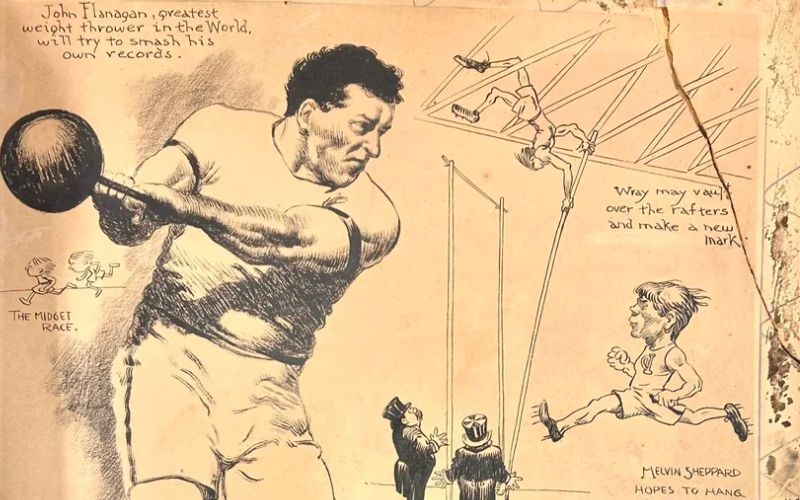One or two of the more optimistic economists here have started to predict that Ireland will emerge from recession later this year or early next year. That view is founded mainly on the fact that some of the world's major economies have already edged out of recession and started to grow a little again, and that world trade will pick up a little in the coming year as a result.
As an open economy heavily dependent on exports, we will benefit from this upturn and Ireland will come out of recession. That's the theory, anyway.
Much as I would like to, though, I'm not buying it myself. I don't think we're going to see much, if any, growth in the Irish economy this year or next year, and we'll be lucky to see it in the year after that.
What will happen, I think, is that we will just about come out of recession, or in other words our economy will stop shrinking. But instead of showing much growth it will flatline, bumping along the bottom for a few years. And that's going to be bad news for all those out of work here and for school and college leavers over the next few years.
That's the reality. But it's a reality that a lot of people here just don't get.
They see a few headlines predicting that the recession is over and they think that we're just magically going to go back to the way things used to be here. I've got news for them -- we're never going back to the way it used to be in the Celtic Tiger years.
Towards the end of the Tiger years our growth was mostly driven by the construction sector, and our manufacturing sector had already started its sharp decline. We've had our property bubble and we're not going to have another, at least not for a very long time.
So if we are to recover the strong economic growth that made us well off, in the future it will have to come from the rest of the economy, from manufacturing and services. For that to work we have got to restore our international competitiveness; in other words, to start producing a whole lot more for a whole lot less. And what that really means is that we will have to work harder and longer for less money.
It's not going to be easy. Last week, in a major speech, the Taoiseach (Prime Minister) Brian Cowen seemed to suggest that the main thing we need is confidence.
The speech, to the Dublin Chamber of Commerce, has become an annual event in which the taoiseach talks freely and directly to the country's business elite. Last week he even invoked the spirit of 1916 as he urged the captains of industry to make the recovery happen.
But it's not that simple. In fact it's even more complex than sorting out our banking mess and getting credit flowing again.
It's not about a lack of confidence. It's about getting our costs down to the level where multi-national companies will want to come here again instead of lining up to get out of the place.
Because that's what they have been doing. Last year 130,000 people in Ireland lost their jobs, many in construction but many also in manufacturing.
The most recent figures, released a week ago, show that there are now 434,700 people here either out of work or working part time and claiming welfare. I remember predicting on this page about a year ago that unemployment would hit half a million, and we're now well on the way there.
In spite of this huge number of people out of work, however, there is also a whole section of the workforce here whose jobs are protected from the crisis because they are cocooned from reality in other ways. As far as they are concerned, they are carrying on as though nothing has changed.
So if you go to the doctor or the dentist, you find that it still costs you as much as before. The same is true of a wide range of professionals, from lawyers to accountants.
It's also true, of course, of all the people who are paid by the state. Yes, their pay has been trimmed a little over the past year, partly to pay more of their huge pension bill, but they are still very highly paid and they have job security, unlike workers in the real economy.
The problem is that too many of these people -- the professionals and those on the government payroll -- are still floating around on cloud nine, and they still don't get it. They talk about the recession and competitiveness, but it's always someone else's problem, not theirs. They oppose all efforts to get them to accept lower pay levels.
The difficulty for the rest of us is that their pay affects the cost of living and of doing business here. Our electricity power plant workers (semi-state workers with a virtual monopoly) are the highest paid in Europe. We also have the most expensive electricity in Europe. That's not a coincidence.
In a way we have become a divided nation. It's not about the border anymore.
These days there's a new border, between those who have secure jobs and those who are out of work. And so far the haves are showing very little consideration for the have-nots.
The professionals talk about the effects of the recession, but there's no sign of their organizations proposing a nationwide drop in fees. The state workers (the last bastion of old-fashioned union power in Ireland) have already begun a campaign of non-cooperation and disruption aimed at reversing the moderate pay cuts that have been imposed on them.
The government desperately needs to reduce the budget deficit by reducing its pay bill, yet the state workers refuse to accept it. They want the government to go on borrowing to pay them.
The result of all this is a growing rift in Ireland between the two sides. Those who are out of work and desperately trying to live on welfare and hold on to their homes look in disbelief at the behavior of the state workers and the professionals.
They read about people on state boards and in state organizations and quangos who are still living like they did before the recession, still taking big salaries, getting big expenses and charging all kinds of things from foreign trips to concert tickets to the taxpayer.
Every week here the media uncovers more examples of this waste, more stories about state organizations which seem to do very little except keep their senior staff in the luxury they have come to expect.
One thing seems clear. The significant reduction in pay and living standards that will be necessary here to shift us back into a competitive position will have to be shared across Irish society.
If that does not happen -- and so far it is not happening --then there is a serious risk here of social breakdown, of those who have well-paid, protected jobs and the army of unemployed becoming openly antagonistic to each other.
That would be a disaster for us, and the government will have to show real leadership over the next couple of years to avoid it.
Apart from the manufacturing sector, the other area that is really suffering here at the moment is small business, including retail, as spending contracts in the recession. Small businesses are having a very tough time, and it's not helped by the triple whammy they face.
Sales are down, the banks won't give them credit to keep going, and the government red tape, enforced by well-paid state workers, continues to tie them up as though everything is normal. It is driving some small business people to despair.
Let me give you an example. My daughter lost her Saturday job in our local bookshop recently when it closed down. The owner explained to me that he could no longer afford to pay the high rent he was being charged.
It was over ****1,000 a week, a huge rent for a small unit in a suburban shocking mall. There were some weeks last year, as the downturn pushed spending down, when his turnover was not much more than that. So after 20 years in business he closed.
He had pleaded with the landlord to reduce the rent, but to no avail. That was a couple of months back and the place is still vacant.
And all over Dublin, in some of the main shopping malls, the same thing has happened. Even on Grafton Street there are a number of vacant units, dark and dirty gaps in the smile on the face of the most prestigious shopping street in Dublin.
Commercial rents are a real problem here now. Like wage levels, they soared during the Celtic Tiger years, making Grafton Street the fifth most expensive shopping street in the world.
The problem is that they have not come down, even though the recession has sharply reduced turnover, and this is destroying many long established businesses.
There was real shock here a couple of weeks ago when the Grafton Street jewelers West -- the Tiffany of Dublin -- said it would be closing. Iconic fashion and shoe stores are also closing, and the street that was once famous for its shopping experience is being reduced to a waste land of cell phone outlets and fast food joints.
Tough times in Ireland -- but not for all.




Comments